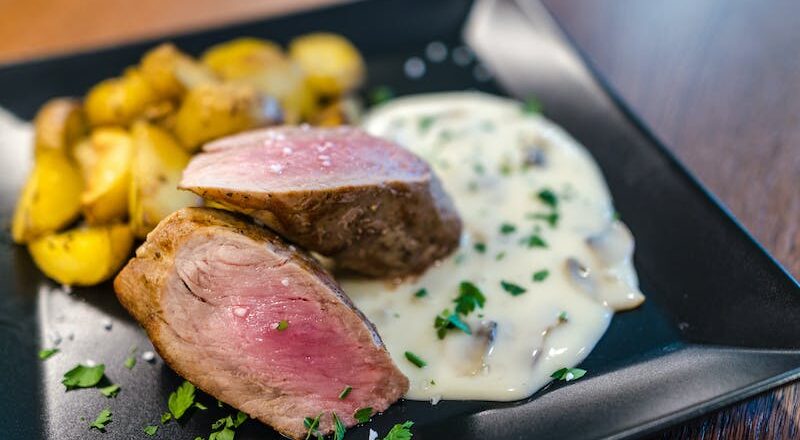
Does red meat cause diabetes? Maybe only at Harvard
Despite the best studies denying it for at least two decades, there are those at Harvard (!) who continue to argue, against all evidence, that red meat causes type 2 diabetes. Why is this?
The campaign against red meat seems to have no end in sight. Experts have started asking themselves questions and wondering why such an unjustified fury exists. Nina Teicholz, a science communicator, reveals that the man behind it all is Dr Walter C. Willett, who for 25 years has chaired the Department of Nutrition at the influential Harvard TH Chan School of Public Health (HSPH) and is a staunch advocate of a vegetarian diet.
His crusade against meat has no scientific basis but is a mixture of personal ambition, financial interest and prejudice. In short, it is a clear example of bad science, characterising his latest study. In it, Willett argues that consumption of red meat and cured meats is strongly associated with an increased risk of type 2 diabetes. It is an observational cohort study, which means it is of low scientific quality because it cannot prove causality and is full of confounding factors.
NOT A STRICTLY SCIENTIFIC STUDY
For example, the definition of red meat here includes lasagne and sandwiches, which is very wrong if you want to assess a food’s effect on health strictly. In this case, the study is inaccurate because the risk may be caused by bread, chips or sugary fizzy drinks eaten with meat, not by the meat itself.
The study’s results have attracted the interest of the press, which immediately ran sensational headlines. On the contrary, scientists who understand science remain astonished by this type of publication since there are meta-analyses and systematic reviews of excellent scientific quality that have already demonstrated that meat does not increase blood glucose, insulin resistance, inflammation and the risk of type 2 diabetes. That meat does not cause diabetes is also clear from the trend in the incidence of the disease, which has increased as meat consumption has decreased while its carbohydrate-rich substitutes have increased. Meat does not contain sugar, it does not cause a spike in blood sugar, and diabetes is a recent disease, whereas we have been eating meat for thousands of years.
But the definitive proof comes from phase 3 research, the many clinical trials of the highest scientific rigour, which show that by encouraging people to eat more red meat by eliminating grains, starches and sugars, it is even possible to reverse type 2 diabetes and make the symptoms of diabetes disappear after a diet rich in red meat. In practice, research on this subject has reached its final stage, refuting the original hypothesis. Instead, Willett continues to publish phase 1 studies on the hypothesis, providing the click-hungry media with false results. Even his second phase studies failed to confirm his hypothesis, as he admits in his conclusions that “An effect “has not been seen”.
ULTRA-PROCESSED PLANT FOODS
Yet it deliberately ignores the evidence and promotes plant protein sources as healthier and better for the planet when the opposite is true. On the contrary, it is ultra-processed plant foods full of additives, starches, sugars, refined oils and hydrogenated fats that increase the risk of cardiovascular disease, stroke, obesity and diabetes. So why deny the evidence and continue to fight against meat when all nutritionists support its vital role in a complete diet for its irreplaceable nutritional value?
“The reason is quickly explained,” Nina Teicholz comments: “For 30 years, Willett has been driven by ideological beliefs, linked to a true church that promotes veganism, with undeniable conflicts of financial interest that interfere with the pure pursuit of science. This is worrying because Willett is the author of nearly 100 academic papers on red meat and disease, all based on assumptions. The experiment has confirmed none of his findings on red meat. If I assume that perfume is bad for the lungs, I have to test the hypothesis before I tell the press. Otherwise, I could cause people to avoid perfume unnecessarily and do irreparable damage to the perfume companies. However, Willett has released his hypotheses to the media for years without testing or even when the tests prove the opposite. Harvard’s public relations team almost always releases his articles to the press, generating ubiquitous headlines. His goal is for his beliefs to reach the highest echelons of power and influence global policy recommendations.
CONFLICT OF INTEREST
Willett also co-chaired the EAT-Lancet Commission, which developed the almost meat-free Universal Diet, which all experts, including The Lancet itself, considered deficient and harmful to health. “Its anti-scientific activism and its vegetarian roots in the Seventh Day Adventist Church, which promotes a vegan diet as a religious creed, do serious damage,” continues the science communicator: “In addition, Harvard has received and continues to receive large donations from foundations interested in environmental sustainability and from companies producing vegetarian foods that advocate the elimination of meat consumption.
Yet Willett almost always declares in his papers that he has no conflicts of interest despite his long-standing commitment to vegetarianism or financial interests. He is seen as an objective source, and the Harvard name is a guarantee. “The way science has been degraded is worrying,” the expert explains: “With Harvard, one of the oldest and most prestigious universities, promoting dubious and disproved hypotheses as a basis for public policy, we have lost our scientific anchor. The first phase of any research, the generation of hypotheses, should be carried out without too much media attention. Once an idea is spread, for example, that meat causes diabetes, it is difficult to retract it and explain how things stand. A lie is halfway round the world before the truth has got its boots on”.
Watch the video below, where Vinnie Tortorich hosts Nina Teicholz in his “Fitness Confidential Podcast” for more details.





